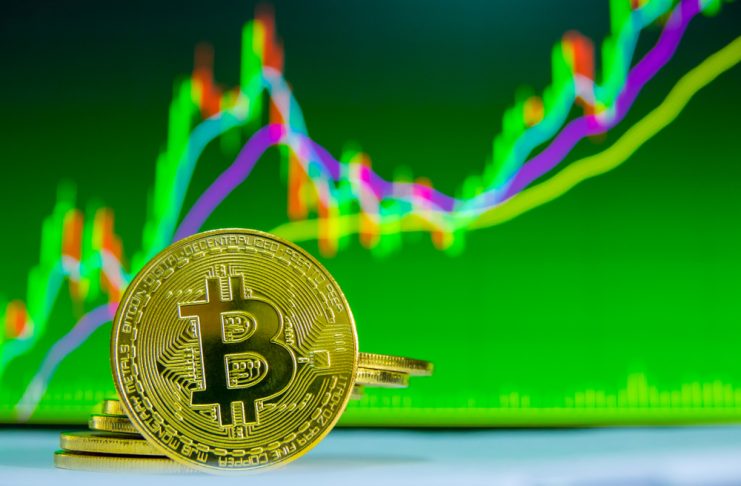At press time, the father of cryptocurrency is trading for $7,001. This is nearly $100 higher than where it stood yesterday afternoon, and it’s a positive sign now that the currency is back above the $7,000 mark.

Some remain bullish about the currency and believe it will steady itself in the long run. Steven Russo – executive vice president of Kripti – states:
“Bitcoin is unquestionably still in its infancy and requires additional time for it to mature. It is going to happen, and there is still money to be made for those that have the heart, stomach and patience. It is not unreasonable to think that returns could be 3x to 5x over the next five years.”
In addition, a new study by Forbes uses the Wheatley and Haye’s economic models to ultimately predict where bitcoin will stand in the next year-and-a-half. The year 2020 to be exact, which we’re not that far away from. The Haye’s model is a little more optimistic and predicts that bitcoin could strike the $55,000 mark in 2020, bringing it higher than ever.
However, the Wheatley model makes the opposite prediction, stating that bitcoin could fall to as low as $2,500 within the next two years.
Analyst Greg Giordano explains:
“Wheatley’s model is known to value bitcoin at a much lower number. The paper is known to state bitcoin’s total market cap at around $20 billion when the actual number is over $130 billion. Therefore, Wheatley’s estimation is one that points to bitcoin’s intrinsic as much lower than all other estimates I have seen. MIT did a comprehensive review on Wheatley’s. However, I believe there is still value to be found in Wheatley’s estimation.”
Bitcoin has also hit a low point with European institutions. It has been reported that Swiss ban UBS feels bitcoin is not ready to become a global payment system, and that the currency would need to hit the $213,000 mark before it could replace the entire U.S. money supply.
Representatives are quoted as saying:
“Our findings suggest that bitcoin, in its current form, is too unstable and limited to become a viable means of payment for global transactions or a mainstream asset class.”
NYSE trader Alan Valdes agrees, explaining:
“How do you protect your bitcoin? These wallets seem very iffy at best. If someone hacks into them, it’s like losing cash. You are out, so I think bitcoin [has] a long way to go for the average person to get involved. Maybe in some emerging markets, you’ll see it take hold. It might work, but I think for trade, we had it at $20,000. Will it get there again? Anything is possible, but I’m not so sure.”
Image(s): Shutterstock.com





2 Comments
One person says it’s this, and another person said no, it’s that. Why can’t it be both? Bitcoin needs to mature, that is most likely true. But just because there may be problems, should that mean we just jump off the ride? Hell no! Let’s just try to keep each other from falling. One thing I do know for sure and that is the “ordinary person, the “little guy” needs to win one for a change. The world needs it! BADLY!
The world needs crypto currencies but not bitcoin. it was really a proof of concept, that has now become a posie scheme, have a look at better tech like IOTA